Vincent Leonard – late Acting (unpaid) Sergeant 2 Para.
[Into one of the most complex, bitter and long-standing conflicts in history, involving religious, political and national disputes, which continues to polarise opinions, a young Para found himself posted. These are his memories of a time when a war-weary world was coming to realise that the fighting was far from finished.]
Background
Ever since the Romans colonised North Africa in 146BC and, I suspect, long before that, the Middle East has been in conflict of varying states of severity. Britain has been involved in some of these conflicts since the seventeenth century but became really entangled in Palestine following the Treaty of Versailles in 1918, when it was ceded the Mandate for Palestine and Trans Jordan, under Article 22 (signed 28th June 1919). One of the arguments for taking on this territory was the “Balfour Declaration” (issued by the then Foreign Secretary Arthur Balfour, on 2nd November 1917) which stated:
“His Majesty’s Government view with favour the establishment in Palestine of a national home for the Jewish people and will use their best endeavours to facilitate the achievement of this object. It being clearly understood that nothing shall be done, which may prejudice the civil and religious rights of existing non-Jewish communities in Palestine….” (British Library).
So, the seeds for the birth of the country that is now Israel were sown but it was always going to be a difficult birth as some positions were entrenched, even before the Nazi atrocities of World War 2 were committed. In a letter to his son, written in 1937, David Ben Gurion (Prime Minister of Israel 1949-54 and 1955-63) said:
“The Arabs will have to go, but one needs an opportune moment for making it happen, such as a war.”
There is a vast body of literature relating to this time and there is no single explanation of the history of the period that fully encapsulates what happened. My memories of this time are told from the standpoint of a young soldier thrown into the middle of a confusing, complicated and dangerous social, political and military stew.
The movement of refugees and displaced persons continued to cause economic and social problems in the post-war years, throughout Europe and beyond, and the drift of Jewish people towards the middle-east was directed by the well organised efforts of the Haganah organisation. In the immediate aftermath of WWII, Britain was rebuilding and had scarce resources to commit to Palestine, yet retained the responsibility to maintain peace, law and order.
The efforts of Haganah were well funded, particularly from sources in the USA and these funds found their way, very quickly, into the terrorist organisations of Irgun Z’vai Leumi (the “Stern Gang”), Palmach, Lehi and the “political” Haganah, which, in a similar fashion to Sinn Fein, always denied direct involvement with violent acts.
1946
The acceleration of Zionist groups towards the establishment of the State of Israel resulted in well organised and intensified attacks on British troops and the launch of the virulent propaganda war:
“The Jewish press informed its readers that 6th Airborne troops were composed of criminals, murderers and jailbirds and were no better than the Gestapo”
[Hold, T. (2008) Straight from the Horsa’s Mouth. Bloomington IN: Trafford Publishing].
Haganah were masters of psychological warfare and exploited incidents, such as those involving the so-called SS Exodus, which soured relationships with the USA at a politically sensitive time when major loans were being negotiated.
On the military side, attacks by snipers, bombers and mine layers on off-duty soldiers and Arab civilians were frequent and often staged by terrorists wearing British Army uniforms. The well documented attacks of the Tel Aviv car park and the famous “Night of the Bridges” when eight bridges (four road and four rail) across the River Jordan were blown up are probably the best known. Although, the most infamous attack came on 22nd July when the King David Hotel in Jerusalem was blown up, killing 91 people, many of them British Services personnel.
1947 – I leave Tyneside
While this had been happening in Palestine, I had been growing up in Gateshead, apart from a short, and highly enjoyable, period in the North Yorkshire countryside, in the village of Ilton-cum-Pott, on the estate of Lord Massam, to which I had been evacuated.
I was called up for National Service in 1947 as 19144869 Pte. Leonard V.J. and volunteered for the Parachute Regiment. I underwent six weeks of basic corps training at Aldershot and a further ten weeks regimental training. The less said about basic training the better! It was the usual round of PT, inspections, drill, rifle training and much shouting. One small advantage I had was that I had been a runner for the Home Guard and my father, a veteran of WWI and serving as a Home Guard officer, had taught me how to strip and clean service firearms. So, when it came to the lesson on stripping and cleaning the Bren Gun, I was called upon to demonstrate the correct method.
Parachute training was, I remember, a much more relaxing experience than the previous sixteen weeks. This was four weeks spent at the jump school at Upper Heyford, Oxfordshire. The jump training was done from Dakotas and happily, was completed without incident or injury, with the exception of a jump when, in a wind higher than the usual 18 miles an hour, I was blown towards the Oxford Road and my boots scraped the side of a bus before landing at the side of the road. I’m not sure what the local commuters thought although I suspect that mine was a far from isolated incident and, of course, in the days when Health and Safety was a laughable concept.
Nevertheless, it did not retard my progress and I successfully completed training and proudly received my wings.
After completing my training, I was given a fortnight’s leave, which I spent at my parent’s house in Gateshead. This turned out to be post-training and (unbeknown to me) embarkation leave rolled into one. I returned to Aldershot to be informed, at an inspection by one of the training Sergeants and the duty officer, that, together with a handful of others, I had been selected for a draft going to Palestine. The military policy of “need to know” was obviously in full-swing and this was also the only briefing we received before boarding the troop-ship.
The journey out
The draft going to Palestine was made up of a full company, plus ten paras of the 8th and 9th Battalions. Most were National Servicemen with a few regulars and some ex Indian Army (one of whom was the most tattooed man I ever saw, his decorations including a full fox hunt on his back with the fox’s brush protruding from his backside and “yes please” and “thank you” on the palms of his hands, ready for pay parades!).
We sailed from Liverpool, embarking directly in front of the old Liver Building. Although I had never sailed before, this being my first journey outside the UK, the voyage, which took ten days, was fairly uneventful. The highlight was stopping, en-route, at Malta and anchoring in the Grand Harbour. The island had been made famous by the wartime siege and the award of the GC but it had obviously suffered enough and we were not allowed to disembark. Nevertheless, that historic fortification remained compelling until I was able explore it on a holiday four decades later. Incidentally, troop transport was under threat of attack and, although we were not told this, the Empress Rival had been damaged by a time-bomb en-route from Haifa to Port Said in April that year.
We sailed from Malta to Port Said, our port of disembarkation where we arrived at night to be greeted by a very large, illuminated, advertisement for Jonny Walker; a great sight, not just because of the promise of a plentiful supply of whisky but because the UK had not fully recovered from the wartime black-out and these bright lights were a real novelty. From Port Said we travelled across Sinai by train to Haifa and Peninsular Barracks, which was to be our home for our sojourn in Palestine. Our accommodation at Peninsular Barracks was the ubiquitous wooden barrack hut and life quickly fell into the well-known military routine.
Daily life in Palestine
We were up at 06:00 hrs. every morning and allotted jobs to do in the Barracks but, fortunately, this did not involve many parades and inspections. There was limited training and we were, primarily, an emergency reserve, not leaving barracks except to conduct security patrols. Jumping was not anticipated in Palestine and no jumps were made while I was there. Nevertheless, I had never had so much money as, with our half a crown (25p) a day parachute allowance and a couple of overseas allowances, I was earning around £10 a week.
When we were deployed, patrols consisted of a full stick (10-20 men), a brick (4-6 men) or, very occasionally a half-brick (2-3 men). The patrols were intended to reassure and protect the local population from terrorist activity. The groups which comprised the main threat were the Lehi and Irgun or “Stern Gang” as they were better known. Most of our attention was concentrated on Hadera and Daliyat al-Karmel as it was common practice in these towns for terrorists to fire indiscriminately into the souk (market).
Briefings before patrols were conducted by the patrol leader, invariably a Corporal or Sergeant with local intelligence being supplied by the Palestinian Police. Each foot patrol was armed with Lee-Enfield .303 rifles or Sten guns and Bren guns (one for every four); everyone carried a minimum of 4 HE grenades. Unlike today, there was only one medic (possibly two) for the Battalion and we Paras were given only basic first aid training and supplied with a single field dressing. Prior to leaving for Palestine we had been issued with ’44 pattern webbing, which was more comfortable than the old “Blanco” kit issued in training and it enabled more equipment (rations, mess tins, water, spade, etc.) to be carried.
Atrocities continued in the Haifa district in 1947 with the derailing of the Cairo to Haifa train at Rehovoth, where survivors were machine-gunned and, on May 31st. the Haifa oil refinery was blown up, turning the sky black for a week or more. Attacks on both British personnel and Arabs by the Zionist groups were now common-place but there were also frequent attacks involving Palestinian terrorists. The British were now starting to find themselves in the middle of a civil war and this first post-war policing action, outside Europe, was spiralling out of control.
However, we were more involved in local activities, such as the occasional cordon-and-search operation, which took place in the countryside, rather than the towns. On these occasions fresh oranges and grapefruit (which were very sweet) could be “scrumped” from trees, a novelty after rationing at home and which we regarded (as generations of soldiers before and since have done) as the soldiers due. Incidentally, these cordon-and-search tactics were learnt from films made by the British Army Film and Photographic Unit and stood the test of time as my son watched the same films when undertaking his military training in Rhodesia in the 1970s!
We had to deal with the occasional demonstration and even the odd riot but they did not occur often and fire was returned only when we were fired upon. We did not have any Baton Guns in those days and so our tactics for quashing riots involved firing into the ground to dislodge chips of stone to cut below knee level. The rioters took advantage of our sense of fair-play and would send women and girls into the front line to ensure minimum force was used and then shoot at us from behind this “human shield”. However, we were nothing if not innovative and I remember that when girls were participating in a riot in a market, which I think was Cameron Square, we had a Bren Gun Carrier that had been converted to use as a flame-thrower, this was filled with derv-oil and sprayed into the crowd. Of course it got into their hair, which they didn’t like and so they dispersed, allowing us to get at the real trouble-makers at the back! On the whole, we did not get attacked often because we did not take much nonsense and, of course, there were far fewer cameras about in post-war Palestine – both a blessing and a curse!
Another task we were allocated was the protection of Jewish convoys, which were bringing displaced people from Europe, to resettlement centres. We quite enjoyed these duties as they involved a trip into the county, were fairly safe and got us a free meal of egg and chips. The vehicles used for transport on these occasions were Bedford QL 3 ton lorries and we would stop at the rendezvous point with the convoy, usually a place called the “Half Way House” between Haifa and Jerusalem. Here we would sit and eat, turning a blind eye while some of our fuel was surreptitiously syphoned off to fuel up the refugee convoy.
Significant memories of 1947-48
In February and March 1948, three Paras were killed in and around Haifa. Sgt John Sturtevant (8/9 Para) was killed by a sniper and Pte Kenneth Hewitt (2/3 Para) was also killed. Pte Kenneth Carroll (2/3 Para) was escorting employees of a Jewish electrical company to repair the lighting in Acre Barracks when, along with another 4 soldiers and 4 Jewish electricians, he was ambushed and killed by a group of Arab terrorists. April 1948 was also the month of the dreadful atrocity at Deir Yassin when 100 villagers were killed and many women and girls raped, which was the catalyst for a Palestinian exodus. This incident was later, reportedly, used in loud-speaker broadcasts by Haganah to remind Arab villages of the price of resistance.
For me, however there are three things that stand out in my memory. Firstly, a memory, of which my friend Bernard Cribbins OBE has spoken, was the explosion caused by a derv-oil stove at the back of the Sergeants’ Mess, which back-fired, setting fire to the Naafi and then the armoury. A group of us managed to unload some of the ammunition before the armoury caught fire and we scattered. The resultant explosion set fire to the camp cinema, which was never rebuilt – not that it mattered much because I’d never seen a show there. We had to tread carefully for the next few days as there were unexploded mortar bombs scattered all over the parade square!
I also clearly remember the visit of the troop ship “Empress of India” and its escort “HMS Newcastle” to Haifa to evacuate our wounded, for two reasons. Firstly, I knew one of the casualties, a lad from Glasgow, a very talented footballer hoping to be a professional, who was tragically shot in the legs, and secondly a former school-friend, Francis Killen, from my home town of Gateshead, was serving in the Royal Navy aboard HMS Newcastle.
Being able to visit Francis on board HMS Newcastle gave an interesting insight into the ship’s role in the Haifa Patrol which was intended to stop Jewish immigrants from Europe who, unable to gain access to the USA, were trying to enter Palestine illegally.
Christmas in Bethlehem
On 26th December 1947 I wrote a letter home to my family, describing Christmas in Palestine. In spite of all that was going on, a circular went around the Barracks to ask if anyone wished to visit Bethlehem for Christmas. As a Catholic boy, I had been brought up with stories of the Holy Land and so jumped at the chance to visit such iconic sites. I was, however, one of only four! So, with a truck at our disposal, we joined a convoy heading for Jerusalem and Bethlehem through the mountain roads, which I noted at the time, “..are horrible..”.
We arrived in Bethlehem at around 7pm and, after a look around the town went to the Church of St Catherine in the Church of the Nativity in Manager Square. Because it was so early, I got a very good seat at the front of the church and found myself amongst the foreign consuls, who were ushered in just before midnight. The Belgian consul fainted and had to be revived with wine and “…an old man with a gammy leg and a sword that was too big for him sat next to me and got his sword entangled with my rifle, and it was a good job the safety catch was on because he pressed the trigger about 5 times before I got it out of his way.” An event like this was very new to me and some of my youthful sensibilities were offended as I wrote, “One thing annoyed me though, press photographers running about on the Altar – and Palestinian Police with their hats on in church..” Being British, in uniform and armed, we weren’t the most popular members of the congregation but then Paras don’t tend to court popularity and the Franciscan friars had to accept the idea that I was not going to be parted from my rifle, even in church!
We got back to barracks around 7am and were allowed to sleep until midday, when we got up for dinner. Clearly, for someone used to war-time rationing, this made an impression and I described the Christmas Day menu as, “Soup, Turkey, roast pork, spuds and veg – Xmas pud and white sauce, 20 fags, apples, oranges, 2 pts Beer and ½ Bottle of Brandy – not a bad dinner, what.” I had also managed, before this, to fit in a breakfast which consisted of, “Grapefruit, Cornflakes and Milk, 6 rashers bacon and 3 eggs.” The rest of the day’s food offerings were noted as “..tea was mince pies & Xmas Cake – no supper”.
Writing this on Boxing Day I noted, “We have today off, to recuperate, some need it too. Some of the lads are in Haifa on duty, we suffered several casualties on Xmas Eve.”
The return home
In my Christmas letter to my parents, I recalled the visit of Major General Hugh Stockwell; “We had the G.O.C. 6th Airborne Division here to greet the now amalgamated 2/3 Bn. and after telling us we had behaved well and what great guys we were, and admitting it was this Regt that was the core of Airborne Div, he said we would not be known when we went home..” .
I returned to the UK in February 1948 on board the troop ship “Empress of Britain”, during which I volunteered for kitchen duties. It made the journey more pleasant because I ate with the crew in the kitchen, who had worked out the order of precedence for serving meals as, galley crew, officers, first class passengers (mostly administrators and their families returning from India) and “the rest”. I landed back at Liverpool, in front of the Liver Building again, a couple of pounds heavier than I’d left Haifa!
Source:
Vincent Leonard
Read More
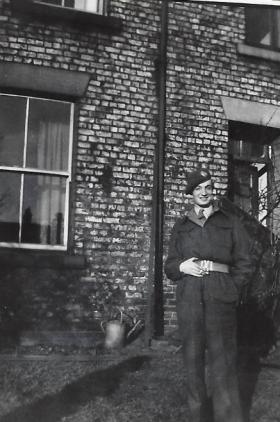

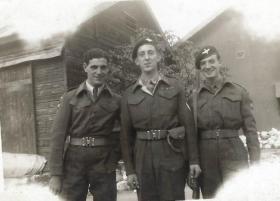

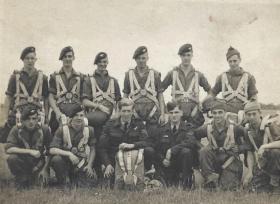
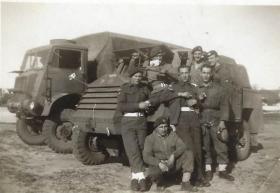
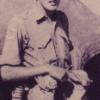
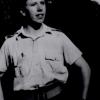
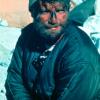
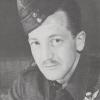
Latest Comments
There are currently no comments for this content.
Add Comment
In order to add comments you must be registered with ParaData.
If you are currently a ParaData member please login.
If you are not currently a ParaData member but wish to get involved please register.